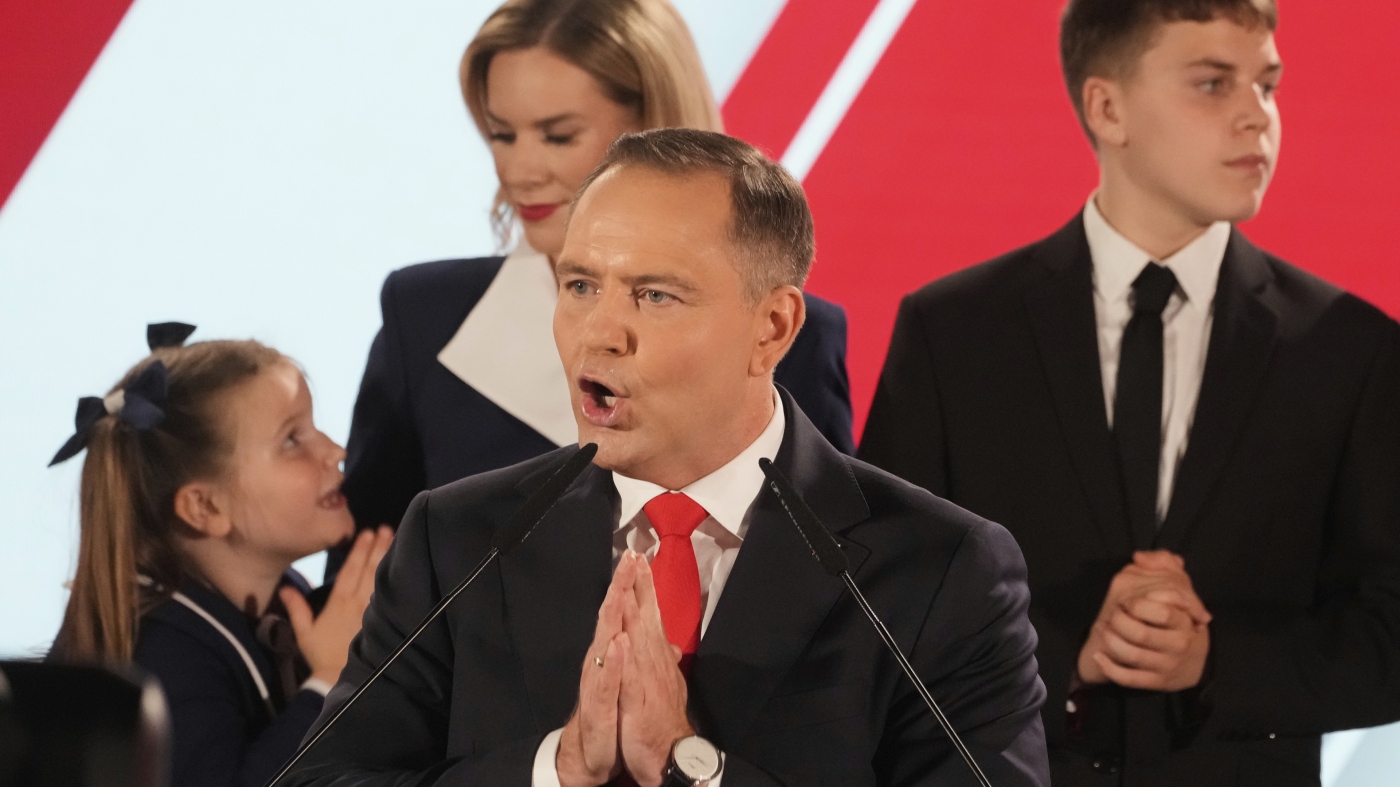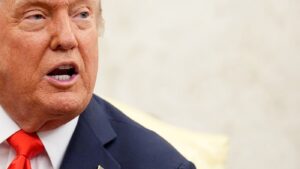
Presidential candidate Karol Nawrocki, a conservative historian backed by the right-wing Law and Justice party addresses supporters at his headquarters after the presidential election runoff in Warsaw, Poland on Sunday.
Czarek Sokolowski/AP
hide caption
toggle caption
Czarek Sokolowski/AP
WARSAW, Poland — In a highly competitive presidential runoff, conservative candidate Karol Nawrocki emerged victorious in Poland, securing 50.89% of the votes over his opponent, liberal Warsaw Mayor Rafał Trzaskowski, who garnered 49.11%.
The election has underscored the deep-seated divisions within Poland, a nation strategically positioned on NATO’s eastern edge and a member of the European Union. Initial exit polls on Sunday indicated a potential win for Trzaskowski, but subsequent updates flipped the narrative, favoring Nawrocki.
With Nawrocki’s victory, Poland is set to embark on a more nationalist trajectory, a path notably endorsed by U.S. President Donald Trump.
The Role of a President in Poland
Though the Polish prime minister, selected by the parliament, wields most of the day-to-day power, the president holds significant influence. The president can shape foreign policy and exercise veto power over legislation.
Nawrocki will follow in the footsteps of Andrzej Duda, whose conservative leadership concludes on August 6.
A Challenge for Tusk
Prime Minister Donald Tusk assumed office in late 2023, leading a coalition government with a wide ideological spectrum. This diversity has hindered his ability to deliver on certain promises, such as reforming the restrictive abortion laws.
Duda’s vetoes have further complicated Tusk’s efforts to overturn laws affecting the judiciary, which the European Union has criticized as undemocratic. With Nawrocki’s win, Tusk faces an even greater challenge in fulfilling his commitments to both voters and the EU.
A Historian with a New Vision
At 42, Karol Nawrocki, a historian, was selected by the Law and Justice party to usher in a new era. After losing power in 2023 to Tusk’s centrist coalition, the party looked to Nawrocki to restore its influence without the baggage of past controversies.
Previously leading the Institute of National Remembrance, Nawrocki has been known for promoting nationalist historical perspectives and orchestrating the removal of Soviet-era monuments. His actions have drawn attention from Russia, which has reportedly placed him on a wanted list.
Nawrocki’s backers view him as a champion of traditional values, resonating with those who oppose secular movements like LGBTQ+ rights.
Trump’s Influence
Donald Trump expressed strong support for Nawrocki’s candidacy. The conservative group CPAC recently hosted its inaugural event in Poland to bolster Nawrocki’s campaign. Kristi Noem, U.S. Homeland Security Secretary and a Trump ally, praised Nawrocki and encouraged Polish citizens to support him.
With approximately 10,000 U.S. troops stationed in Poland, Noem hinted at potential deepening of military ties under Nawrocki’s leadership.
Many of Nawrocki’s followers believe he symbolizes a return to “normality,” reminiscent of the changes they associate with Trump’s presidency. U.S. flags have been a common sight at his rallies, symbolizing hopes for strengthened U.S.-Poland relations.







Be First to Comment